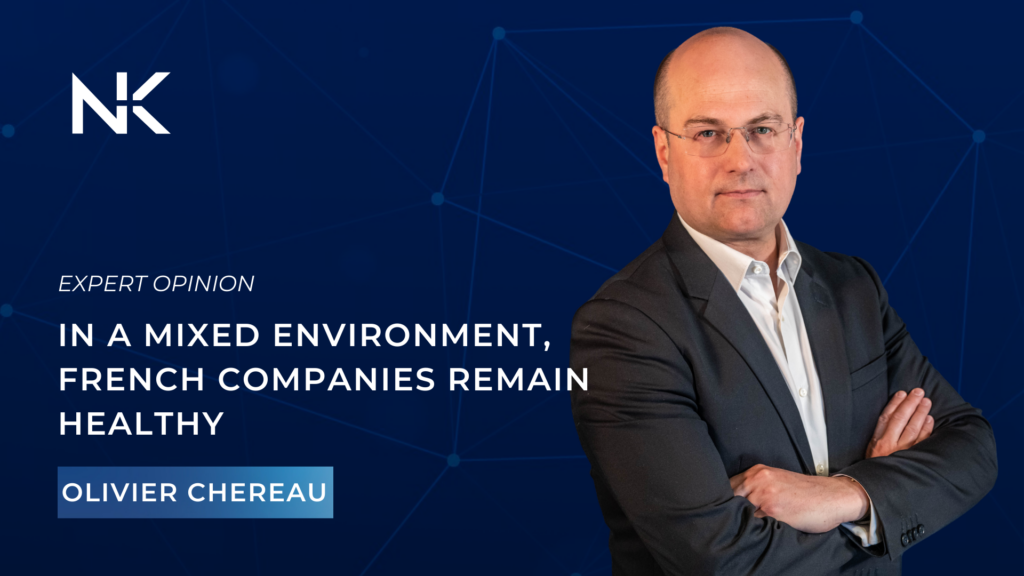In France, barely had the magical interlude of the Olympic Games—held a year earlier in the City of Light—come to a close, when a long period of uncertainty began. Politically, of course. Economically as well—though not a crisis per se, rather early warning signs of a slowdown. These took the form of lengthening payment terms, a high level of business failures (+17% for all of 2024), thinner order books in industry, construction, and certain service sectors, and, on the financial side, lenders becoming more selective and/or less responsive.
Signs of Optimism Nonetheless
Yet there are reasons to remain optimistic, despite the negative economic and political news coming from the United States (tariffs in particular) and China, to name just two obvious examples.
In Europe, for instance, the fall in inflation to more normal levels has been accompanied by encouraging signs in consumer spending. This is notably reflected in traffic at certain shopping centers in France. Could we be witnessing the end of the retail crisis—particularly painful in France—especially in sectors such as apparel?
The European Central Bank’s gradual reduction of key interest rates should also bring many benefits, including eventually overcoming the severe real estate crisis we have endured, as evidenced by the rebound in housing loans (nearly €10 billion in January).
Companies in Good Health
It is also worth remembering that the overall state of French companies remains sound, thanks to favorable financing conditions and a financial ecosystem that is both comprehensive and high quality.
Overall, corporate debt is not alarming. At 79% of GDP, it is high in gross terms; but net of available cash, it stands at 39%—close to levels seen in Germany (31%) or the United States (35%). SMEs, for their part, had been steadily strengthening their equity until the pandemic: by the end of 2019, equity represented more than twice their gross debt. Today, their cash reserves are higher than before the pandemic. Even so-called “zombie” companies (over ten years old, whose gross operating surplus does not cover interest charges for three consecutive years) are not the ticking time bomb once feared: more and more of them are returning to viability, according to France Stratégie in 2023.
As for credit distribution, the situation is improving: in January, the annualized growth rate of outstanding bank loans reached 2.3%, compared with 1.3% a year earlier. Financing costs have benefited from falling interest rates and have been steadily declining since November 2023, standing at 4% in January (all maturities combined). Financing conditions are in fact more favorable than in most European countries, thanks in particular to the competition among financial institutions. French companies can rely not only on well-rated domestic banks, but also on many leading international banks, a powerful and diversified asset management industry, and highly dynamic alternative lenders.
Structuring the Balance Sheet to Face Strategic Shifts
That said, let’s not be naïve: the level of risk and uncertainty remains undeniably high. In this highly contrasted environment, and even in good health, companies must pay close attention to the means and resources that will ensure their growth and sustainability. Their ability to withstand exogenous shocks must be modeled more rigorously than ever through in-depth financial analysis.
With no room for error when making, for example, a strategic investment, they need comprehensive, 360-degree support—combining diagnosis (including family governance reviews), advisory services, and intermediation. This should focus on sources of financing, the balance between equity and debt, maturities, choice of co-investors, and in particular the role assigned to investment funds and/or entrepreneurial families redeploying their capital with other business leaders.
The high level of economic uncertainty should not be an excuse for inaction. It is often by investing at the bottom of the cycle, with foresight, that the best decisions are made. That is why it is essential to keep investing, while minimizing risk through carefully designed financial engineering.
Olivier Chereau – Managing Partner

